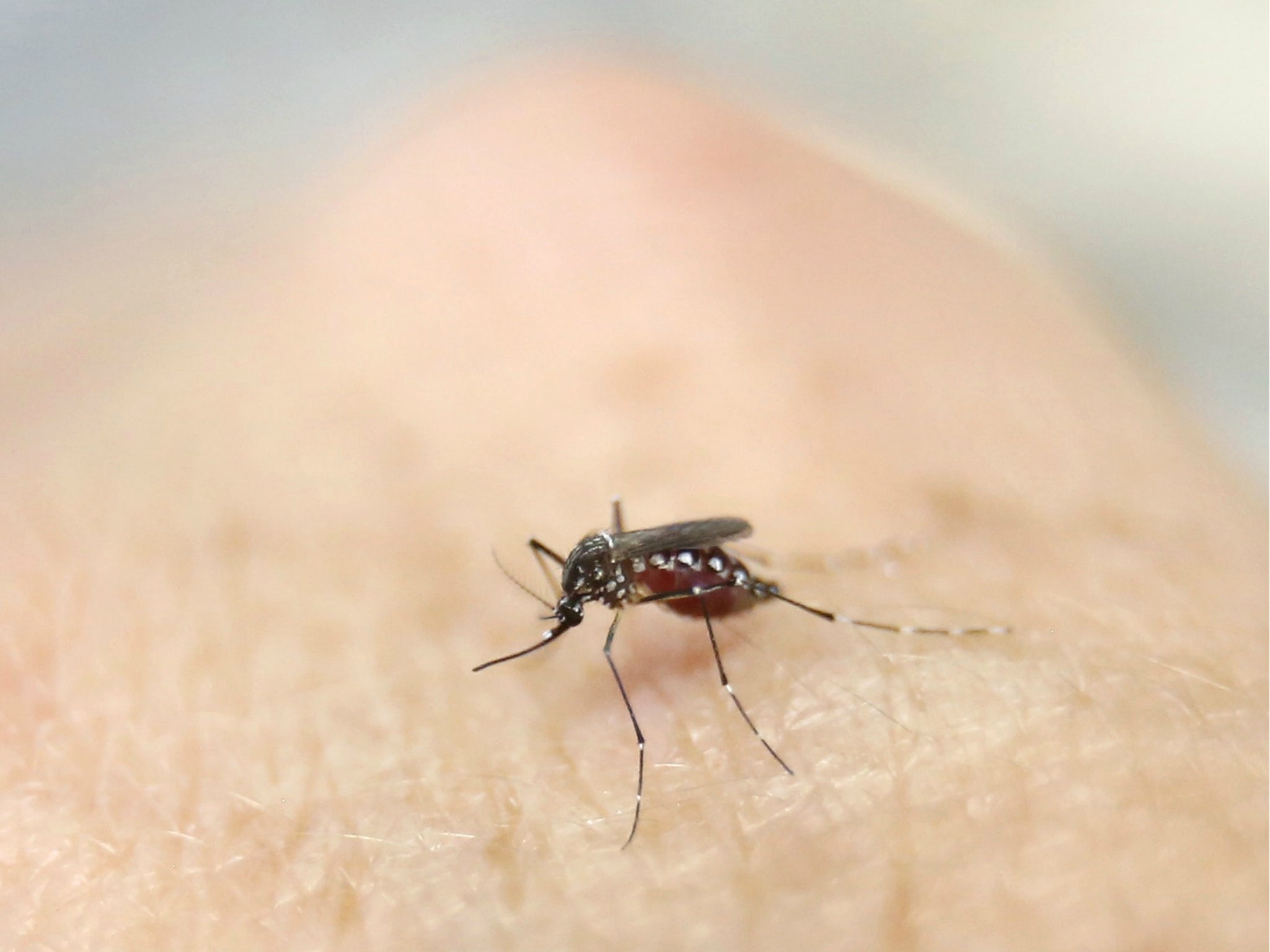Cases of Mosquito-borne illnesses have tripled in the US since 2004, report says
The number could be higher given that not all cases are reported

Your support helps us to tell the story
From reproductive rights to climate change to Big Tech, The Independent is on the ground when the story is developing. Whether it's investigating the financials of Elon Musk's pro-Trump PAC or producing our latest documentary, 'The A Word', which shines a light on the American women fighting for reproductive rights, we know how important it is to parse out the facts from the messaging.
At such a critical moment in US history, we need reporters on the ground. Your donation allows us to keep sending journalists to speak to both sides of the story.
The Independent is trusted by Americans across the entire political spectrum. And unlike many other quality news outlets, we choose not to lock Americans out of our reporting and analysis with paywalls. We believe quality journalism should be available to everyone, paid for by those who can afford it.
Your support makes all the difference.The number of disease diagnoses coming from mosquito, tick, and flea bites has tripled since 2004, according to the Centres for Disease Control (CDC).
The Atlanta, Georgia, federal government agency said it had documented 96,075 cases in 2016 compared to 27,388 in 2004 in the US and its territories, outlined in a new report issued earlier this week. The report also marked the first time the CDC had tallied the number of such vector-borne diseases which include but are not limited to Zika, West Nile, Lyme, dengue, plague and chikungunya.
The CDC pointed to a number of factors that could have contributed to the more than 640,000 cases of these diseases were reported to the CDC between 2004 and 2016. The report stated it could be some combination of increased international travel by Americans, mosquito populations increasing and moving into new areas populated by humans, people increasingly taking over mosquitoes' habitats, and the number of diseases discovered to be caused by mosquitoes, fleas, and ticks.
However, the reported stated the gathered data “substantially underestimate disease occurrence,” meaning the actual number of people infected may be much higher considering reporting rates and that some illnesses were not included.
To add to the alarm, the CDC also estimated the US is not prepared to handle these increasing numbers of diagnoses. CDC Director Robert Redfield said in a statement: "We don't know what will threaten Americans next. Our nation's first line of defence are state and local health department and vector control organisations, and we must continue to enhance our investment in their ability to fight against these diseases”.
Unfortunately, the CDC said, state and local public health agencies would have to bear a larger burden to track, diagnose, document, and research the reason for the increase during a time when many public agency budgets have experienced cuts.
Some of the diseases caused by ticks, fleas and mosquitos can be managed, like Lyme disease. However, viruses like Zika can be fatal since there is no virus. Pregnant women are especially at risk. Zika can also cause birth defects, fever, rash, and headaches. Viruses like West Nile could cause body aches, nausea, body and joint aches, and diarrhea, which in children and the elderly could be particularly harmful.
As the Washington Post reported, these diseases in the US “are notable for their wide geographical distribution and resistance to control. Only one of the diseases, yellow fever, has a vaccine approved by the Food and Drug Administration”.
The CDC report warned that the public should use insect repellants and avoid bare skin exposure, especially in wooded areas, keep finding and removing ticks particularly when walking in tall grassy areas, control fleas on pets, and use screens on windows and doors.
Join our commenting forum
Join thought-provoking conversations, follow other Independent readers and see their replies
Comments